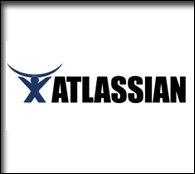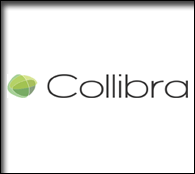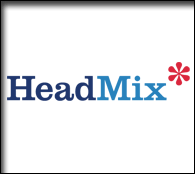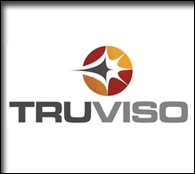Archive for June, 2007
Back from the reality distortion field
by Eric Norlin on Jun.30, 2007, under general
Maybe I’m just getting old (or crotchety, or something), but when we landed in Atlanta on the way back from SanFran, I said, “you can feel that we’ve left the San Francisco reality distortion field.”
Honestly, I’m not even sure what I meant by that — but things do *feel* different there; as if somehow you’re not *totally* unconnected from the “real world,” but you are definitely just hanging on by a thread (no offense to my bay area friends - I had a great time!). ![]()
More on this if I ever figure out what the hell I’m talking about…
Platinums, Golds and Silvers - gone!
by Eric Norlin on Jun.28, 2007, under sponsors
As of today, Defrag is officially sold out of our sponsorships (platinums, golds and silvers).
We still have what industry folks call “MPOs,” or marketing/promotional opportunities — things like the lanyard/badge sponsorship, wifi sponsorship, etc — but if you were waiting around to actually be a sponsor of Defrag (platinum, gold or silver), well….a bit late.
Alright, enough self-congratulatory stuff — back to building a great commuity around Defrag. ![]()
Light posting and congrats to Lijit
by Eric Norlin on Jun.26, 2007, under industry stuff
I’m off to Burton Group’s Catalyst conference in San Francisco, so expect some light posting. Congrats to Lijit on closing their most recent round! ![]()
Going, going…
by Eric Norlin on Jun.23, 2007, under sponsors
I’m happy to report that as of this morning, we have ONE Defrag sponsorship left (a silver). We’ll be announcing the folks that have been buying out our platinums and golds in short order. After this last silver goes, the only “sponsorship opportunities” we’ll have left will be things like “wifi sponsor” or “lanyard sponsor.”
Needless to say, if you’re thinking about being a sponsor of Defrag - don’t delay.
And, since we’re still four months out, to be able to say *right now* that we know we’re going to sell out on the sponsor side makes me exceedingly happy. Thanks to all for their help on this — on to content, speakers and gathering together a great community of attendees. ![]()
On “the facebook problem”
by Eric Norlin on Jun.22, 2007, under general
Brad’s writing about “the facebook problem” - namely, that Facebook has done a great job of assembling a community and making it easy for developers to write apps, but not so good a job helping those developers realize any tangible value from doing so. Anyone who’s been reading here lately knows that I’ve been experimenting with Facebook as of late and reaching the same spot that Brad’s in.
Here’s my thing:
The *good* thing about a platform is being able to tap the community associated with that platform. The *bad* thing about the “social networking” movement is that everyone is trying to build a new platform. While the *hard* thing about platforms is getting the viral-community aspect going.
I know what I want — I want all of the ability that comes with developers writing to an active, viral community platform, but I want it in such a way that the developers and I see the value of that platform (along w/ the platform vendor).
As I’ve said before, if Facebook could become a default for conference social networking, that’d be awesome. The problem lies in A) having an API robust enough to make it worth it for the app developers; B) having the users easily realize the value of those apps and C) having guys like me be able to see the value we want to see from it (conference registrations).
I guess that’s why they call it an “ecosystem.” And it ain’t easy…
A rash of good writing
by Eric Norlin on Jun.21, 2007, under conference topics, general
Somedays you just wake up to other people writing great things ALL OVER the place. Today is one of those days.
Here, then, are some great thoughts and pieces of writing:
1. Stowe Boyd (who I’m loving with his whole “embrace it, don’t shut it down” philosophy) on “Attention Economists”:
“No, we need better techniques to live in the flow, not shut it down. We need to shift away from the web of pages to a web of flow, where what we need will find its way to us. By all means, throw away your RSS reader, spend less time in the email client: but not because of attention economics! Those tools are just really bad at treating time as a shared space.
The real problem underneath everything, the premise never examined, is that browsing the web and living in the email client are simply not where we should be. It’s not that we are overloaded with too much, its that the tools we use are doing a bad job of connecting us to the important things. They are bad tools.
We need to unseat email and browsing — Web 1.0’s linchpins — and move into the web of traffic and flow.”
Emphasis mine: I really think the idea of “time as a shared space” is big, and I can’t wait for Stowe to help us unpack it more at Defrag.
2. Jeff Nolan on why the whole viral distribution on Facebook is actually *intensely* interesting:
“Without question the large vendors look at Myspace and Facebook as mere toys and that reflects as much a misunderstanding of what these things are as it does the cultural disconnect that many enterprise software executives have with the broader market. They will say things like “our customers don’t use those services” without considering that while the CIO isn’t using them it’s an odds on favorite that a good number of people in the organization are.
It’s also worth pointing out that enterprise vendors consistently put themselves at the center of the universe like an aging movie star that doesn’t realize s/he is told old to play the role (think Sharon Stone in Basic Instinct 2). SAP/Oracle/Microsoft/IBM may be the gorillas in the global enterprise market but selling to 50,000 global customers out of a market of 100 million businesses (that’s a guess, I don’t know what the actual stat is) is hardly going to drive the growth each is predicting. This dovetails with something else I talk about frequently, selling to users instead of organizations.”
I’ve been spending a lot of time poking around Facebook — to the point where my fiance pointed out how *unlike* me that is. Jeff hits on the reason — there’s something different about the distribution there. I can feel it, but I haven’t put my finger on it yet.
3. Alex touching on the same themes Stowe keeps writing about:
“And this is not necessarily a bad thing! Iteration is a very powerful algorithm for reaching the best solution. In math and computer science, iterative algorithms are known to solve problems that are not possible to fit into an exact formula. In nature, iteration is the key to adaptation - it has worked for billions of years. So it seems that iteration has now found its way permanently into our business and daily lives.”
4. And finally, Brian, with my favorite rant of the morning:
“Is it revolutionary when everyone uses the same pickup lines? When I hear someone reify ‘the conversation’ (sic) or ‘the blogosphere’ (sic), or talk about community as though it were a big ol’ shared lump of happiness we are all clinging to like children, I want to reach for a Saz. As Mike notes from recent in-the-trenches experience: it’s not actual conversation we’re catalyzing with these tools.
‘Conversation’ is a metaphor, dig? You have actual conversations, right? With real people, who sometimes laugh, sometimes smirk, sometimes misunderstand what you say, sometimes kiss you, sometimes give you a redbelly in return? Yeah, well blog discourse ain’t that. ‘Markets as conversations’ was a really useful trope, a rejiggering, at a certain point in time when the rhetoric was getting hot as it is today.
This is not about the fact that everyone is suddenly an expert in social media or that every agency suddenly realizes they need to realign to get in on some of this. I’m confident that people will get the social media thinking they deserve.
It’s just that it seems to me that the most clueful thing we could do is to become mindful of our language again. Make it new, as the crazy poet said. Revive cliches, even if we have to destroy them en passant.
I’m just talking here.”
Yowza!
That’ll kick start the brain this morning…
Cool, but I want more
by Eric Norlin on Jun.20, 2007, under general
I tried to play around with the Defrag facebook group a bit today, and I guess I’m not finding what I want…..
Here’s what I WANT to do: turn our facebook group into a social networking app for Defrag — with the following features:
1. a count-down timer - preferably in big block numbers that make a really annoying “24″ sound ![]()
2. a way to have everyone that joins (and enters their blog) immediately become part of a Lijit search that’s on the facebook page.
3. a me.dium module running on the facebook page, so i can see where other members are.
4. a wiki page, edit-able by group members for suggestions on conference content.
5. a way to run “contests” — do X, win free admission to Defrag.
(other ideas?)
maybe I’m just an idiot and I’m not figuring out how to do this (I’m not what you’d call an “early adopter”), or maybe the facebook platform isn’t ready, or maybe…..
Ambient Insight
by Eric Norlin on Jun.19, 2007, under defrag "theory"
We’ve been talking a lot lately about the implicit web — and largely in the “discovery” sense…ie, companies that help you to “discover” something (or discover something about you) via actions. But there’s another side to the implicit web — the assembly side.
Context can be found in this post and in this handy dandy diagram:
Uploaded with Skitch!
Today, TechCrunch has an article about companies that fall into the “Assembly-Active” side of the grid….companies that are *clearly* part of the implicit web. Not “implicit” in the sense of “discovery,” but implicit in the sense that they help people assemble the ambient processes that are floating around.
Which all brings me back to the key word of the implicit web: Ambient.
Whether we’re talking about collaboration harnessing ambient knowledge, next-level discovery allowing ambient findability, business intelligence harvesting ambient competitive differentiators or “assembly” companies helping people to build mechanism that leverage ambient processes — its all about ambience, and, ultimately, ambient insight…
…accelerating the “aha”…
![]()
Tell your friends
by Eric Norlin on Jun.19, 2007, under general
We’ve crested the 100 mark for members of the Defrag/Implicit Web group on Facebook. I haven’t quite figured out *what* we’re gonna do for all of our new friends — discounts to defrag, a round of drinks in the hotel bar, invites to some top-secret alpha, something — but we will find a way to take care folks…..ie, if you haven’t joined, do so — and tell your friends.
Finding Elliot
by Eric Norlin on Jun.18, 2007, under industry stuff
File this under sometimes stuff is happening right underneath your nose and you don’t know it.
As Defrag’s facebook group continues to grow (we’ve doubled in size in 24hrs), I’m continually reminded about how much is happening around the implicit web that I just don’t know about.
Case in point: Elliot Turner. Elliot’s running a company in Denver called Orchestr8, and it is focused on implicit web problems. Now, you’d think that running Defrag in Denver would mean that I’d have connected with Elliot by now. Nope (it took Brad pointing his blog out). In any case, go check out Elliot’s blog, as there is some great thinking about the implicit web happening there.
ps: Brad designated me the “Chief Defragging Officer” over on Facebook. I’m still parsing the exact responsibilities of that title — i mean, is there Sarbox section 404 compliance involved? ugh. ![]()









